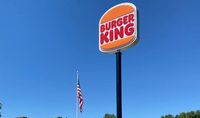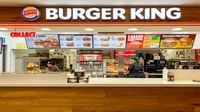Consolidated Burger Holdings LLC, a franchisee managing 57 Burger King locations across Florida and Georgia, has filed for Chapter 11 bankruptcy protection, marking a significant shift for the once-thriving operator. The filing, submitted on April 14, 2025, in the U.S. Bankruptcy Court for the Northern District of Florida, reveals the company’s assets and liabilities are both estimated between $50 million and $100 million.
The company has been grappling with financial distress, owing tens of millions of dollars to over 200 creditors, including Burger King Corporation, which is owed more than $2.4 million in unpaid franchise fees. Other notable creditors include MBM Corp., which is owed $125,480 in trade debt, and Applefield Five Family Limited Partners, which is owed $105,000 in rent.
Consolidated’s bankruptcy filing is not an isolated incident but part of a troubling trend within the fast-food industry, where franchisees are increasingly facing financial pressures. The road to bankruptcy for Consolidated has been long and fraught with challenges. The company has been embroiled in a legal dispute with Burger King Corporation since 2019, which was only settled in September 2024. Despite the resolution, the financial ramifications were severe, leaving Consolidated with a staggering debt load.
As of the bankruptcy filing, the company reported just $179,000 in unrestricted cash and cash equivalents. To navigate through this tumultuous period, Consolidated has secured a $1.6 million emergency loan, known as debtor-in-possession (DIP) financing, which will be used to cover payroll, rent, and other operational costs while the company restructures.
Joseph J. Luzinski, serving as the chief restructuring officer, is now leading the company through this process, with legal support from Berger Singerman LLP. The primary goal is to sell its assets through a court-supervised sale process. This situation raises significant concerns for those involved in franchise and insolvency law, as it highlights the precarious nature of franchise operations under financial and legal strain.
The financial challenges faced by Consolidated are compounded by broader industry headwinds. The fast-food sector has seen rising labor costs, increased prices, and shifts in consumer spending habits, all of which have placed additional pressure on franchisees. Consolidated’s total debt stands at approximately $36.6 million, including $14 million in secured loans and over $21 million in unsecured obligations.
In 2024, the franchisee reported revenue of $67 million, down nearly $10 million from the previous year, resulting in an operating loss of $12.5 million. The decline in revenue has been attributed to various factors, including a decrease in foot traffic due to the COVID-19 pandemic, which has not seen a proportional decrease in debt service and other liabilities.
Despite investing heavily in remodeling efforts since 2018, including upgrades to HVAC systems and parking facilities, the company has struggled to offset the rising costs of labor and inflation. Efforts to market its assets, including outreach to 235 potential buyers through investment bank Peak Franchise Capital, have not resulted in satisfactory offers.
Consolidated is not alone in facing such challenges. Other Burger King franchisees have also declared bankruptcy in recent years. For instance, Meridian Restaurants Unlimited, which operated 120 stores, filed for bankruptcy in March 2023, selling a majority of its restaurants months later due to pressures from the pandemic. Similarly, TOMS King, which had 90 units, also succumbed to bankruptcy earlier in 2023.
The fast-food industry has seen a pattern where legal disputes with franchisors can linger for years, draining resources and complicating operational stability. The case of Consolidated serves as a reminder of the potential risks involved when franchise agreements go awry. The ongoing legal disputes and financial strain faced by franchisees highlight the need for a more sustainable operational model in the fast-food sector.
In light of these developments, Burger King has been working on a modernization plan, announced in 2022, which promised a $400 million investment aimed at revitalizing the brand. However, this plan requires franchisees to co-invest, a stipulation that has proven difficult for some operators to meet. As a result, many have faced closures or have been forced to sell off locations.
As the fast-food landscape continues to evolve, it remains to be seen how franchisees like Consolidated will adapt to the changing environment. The pressures from rising costs, coupled with the need for modernization and operational flexibility, create a challenging atmosphere for franchise operators.
The situation at Consolidated Burger Holdings is indicative of a larger trend within the fast-food industry, where financial struggles and legal disputes are becoming increasingly common. As the company navigates through its Chapter 11 proceedings, the outcomes will likely serve as a case study for other franchisees facing similar challenges, highlighting the importance of financial stability and adaptability in a rapidly changing marketplace.







